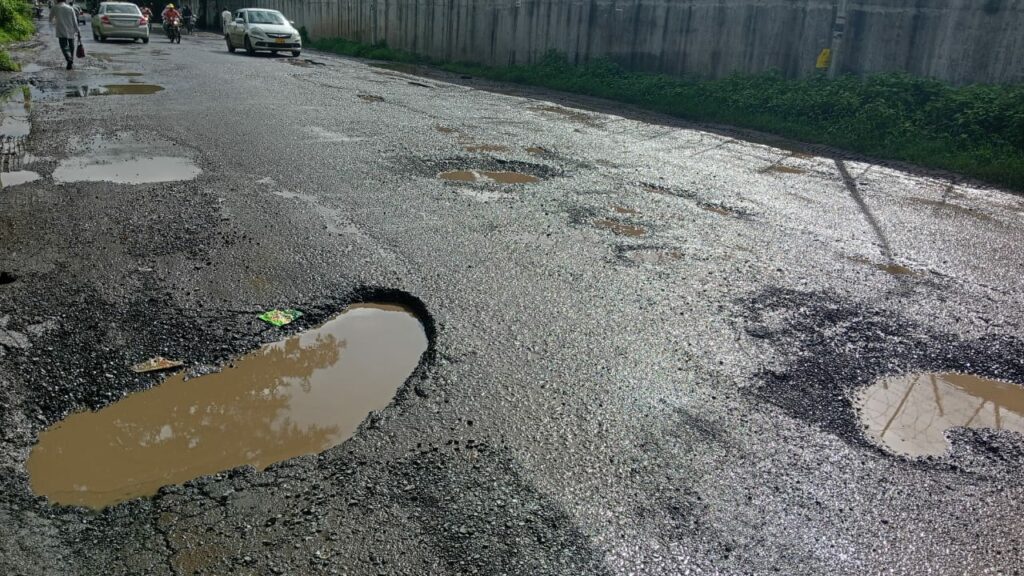Pune Citizens Rally Together In “Chalo PMC Pune Samvad” Initiative For Civic And Environmental Rights

Pune, 12th September 2023: A dedicated group of concerned citizens has launched a significant initiative called “Chalo PMC Pune Samvad – A forum of Punekar, By Punekars, and for Punekars.” This initiative aims to empower citizens to voice their concerns and demands regarding civic and environmental issues in Pune and its surrounding areas.
Gangotri Chanda, one of the initiators of this campaign, emphasized the importance of citizen engagement in democracy. She stated, “Democracy doesn’t solely revolve around the right to vote; it also entails the right to scrutinize and evaluate the tasks entrusted to those in power – the individuals we elected to serve us and who are funded by our tax contributions. Despite Pune Municipal Corporation (PMC) boasting an annual budget of Rs. 10,000 crores, we continue to grapple with pressing issues such as water scarcity, inefficient public transportation, flooding, waste disposal, drainage and sewage problems, river and air pollution, prolonged power outages, deteriorating footpaths, potholes, limited accessibility, inadequate cycle lanes, and ecological degradation. These challenges prompt us to question the effectiveness of our administration. Thus, we are facilitating a platform for ordinary citizens to express their concerns, assert their rights, and navigate a livelihood system marred by unnecessary competition.”
Manoj Dudhankar added an important observation, highlighting the property tax levied by Pune Municipal Corporation (PMC). He explained, “PMC charges property tax from every apartment within a housing society as soon as it is constructed and occupied. The annual property tax can range from Rs. 6,000 to Rs. 18,000 per apartment per year, depending on factors such as location and occupancy (self-occupied or rented). Given the significant amount of property tax paid by society members, the basic amenities provided by PMC often appear insufficient.”
Ameet Singh, an economist, added, “Towards a better Pune, we are seeking citizens’ feedback on the quality of civic issues. We will represent these concerns to the authorities and make them visible to PMC and the public through a dashboard. Please describe your issues comprehensively but concisely so that the relevant department can address them effectively.
As long as civic issues persist, these initiatives will continue. The information collected through this form will be presented to the PMC as letters on your behalf. Often, when we make a phone call, send a tweet, a WhatsApp message, or write a well-intentioned letter to the authorities and see a pothole in front of our house getting filled, we feel satisfied.
However, the truth is that we tend to be content with very little. What we may not realize is that a significant amount of money, Rs 10,000 crore for the PMC, Rs 5.5 lakh crore for Maharashtra, and Rs 40 lakh crore annually for the Centre, is consistently mismanaged through bureaucratic power and laws, leading to the misappropriation of our tax rupees.
This mismanagement is evident in our slums, air pollution, traffic congestion, uncollected garbage, untreated sewage, poor roads, and deteriorating infrastructure. Pune contributes over a lakh crore Rupees in direct taxes alone, yet we continue to endure these issues because our concerns are not systematically represented through data. The middle class is gradually disempowered, leaving us with no voice of our own, as we rely on morsels handed to us by those in power.
We need the middle class to join us in making our city livable. Individual issues at the city level become collective problems. That’s why we encourage you to fill out this form as many times as you have issues, providing detailed information about your neighborhood. It will help us create a dashboard and convey to ourselves and anyone who listens that we need to move beyond politicians or NGOs as our representatives. They lack a vision or plan for the city, and they have consistently let us down.
Let’s work together to make this city livable through Puneसंवाद.'”
Among the critical concerns raised, the quality of public infrastructure emerged as a recurring issue. Traffic management, road conditions, garbage disposal, and water supply topped the list of citizen grievances. To address these concerns systematically, “Chalo PMC Pune Samvad” has launched a form to gather data on civic problems, aiming to create a comprehensive dashboard highlighting issues across Pune’s neighborhoods.
The issues collected thus far encompass:
- Inadequate Water Supply: A significant portion of maintenance funds (approximately 30-35%) is allocated to utility water supply through tankers in each society, placing an added financial burden on residents who also pay ‘Water’ and ‘Water Benefit’ taxes as part of their property tax.
- Neglected Road Infrastructure: The city has long seen roads proposed on development plans, but their actual construction and maintenance have lagged behind. Existing roads often require widening, proper repair, and leveling due to damage caused by water pipeline and cable installations.
- Illegal Roadside Encroachments: Unauthorized hawkers and shops have encroached upon walking tracks, endangering residents, schoolchildren, and senior citizens who are forced to walk on the roads amidst illegal parking.
- Dry Garbage Collection Issues: PMC does not collect dry garbage from societies, compelling residents to hire private contractors at their own expense.
- Malfunctioning Street Lights: Despite the presence of infrastructure, street lights are not efficiently operated or maintained.
- Traffic Congestion, Public Transport, and Drainage Problems: These issues are prevalent throughout Pune and demand attention.
Currently, the initiative has collected over 300 grievances from various parts of Pune, with road conditions, waste management, and traffic issues dominating the list. These concerns are being compiled and will be formally submitted to PMC on behalf of the city’s citizens.
Citizens can contribute their concerns through this form.






